|
A leader’s role to gain influence from team members, clients, and other people with their words is challenging. Using powerful questions to foster more engagement is a skill set leaders are more actively using. However, providing the correct answers to the questions asked is most often overlooked. In today’s episode we interview Brian Glibkowski, PhD, Answer Intelligence (AQ)™ Creator, and author of the book, Answer Intelligence: Raise Your AQ. Today’s topic is focused on creating influence and effective communication among team members using the AQ Framework as they Team Anywhere.
0 Comments
In this episode of Inside the Director's Circle, my guests and I bust some myths about effective communication. In the last episode, we focused on AQ (Answer Intelligence) the missing link, as we see it, of highly effective communication. Listen back to the last episode, those that missed it, as you might find it useful before you listen to this episode. Last time we tried to bust the first myth of "if you ask great questions and listen intently, then highly effective communication happens". It was all the notion that answers naturally occurred from asking great questions. However, as Dr Brian Glibkowski explained in the last episode, that isn't the case. Answers are as important to consider and prepare for as questions for an effective and balanced conversation. I was once again joined by two of our members from The Director's Circle community; Gemma Steadman, Business Unit Director at Hadley Group, and Jacqueline Watson, Director of Marketing and Business Development at Henderson Loggie. Gemma took on board a point I made about how as leaders there can be a perceived difference in what we consider our level of communication has been with our teams and what the reality is. What I said that resonated with Gemma was that: "I think as leaders, we've got everything running through our head all the time; our strategy, our plans, our challenges. And then, for example, once a quarter, we stand up and talk to our team and say, let me tell you where we're going. Let me tell you our vision. And then we go back and run it through our head for three months." What I always try to say to leaders is to think about over-communicating because the communication to yourself versus the outward communication is massively different. Jacqueline suggested that understanding your audience, whomever that might be; a single person, a large audience of people, or people to who you are marketing, is the most important thing to have meaningful and effective communication. Deeply understanding your audience allows your questions to be more targeted and your answers to be more relevant, enabling your conversation to resonate more.
Show Notes
Answer Intelligence (AQ), which some people have called the missing link in highly effective communication, is the subject of this week's episode. As you might have guessed, for the next two episodes we are delving into the subject of effective communication. My knowledge circle expert for this subject is Dr Brian Glibkowski, creator of AQ. Brian explains that AQ is the ability to provide elevated answers to explain and predict in a complex world, emotionally connect, and achieve results. Brian is joined by two of our Director's Circle community members; Gemma Steadman, Business Unit Director at Hadley Group, and Jacqueline Watson, Director of Marketing and Business Development at Henderson Loggie. Show Notes In this episode, Jerome and Julienne are talking with the creator of Answer Intelligence (AQ)™, Dr. Brian Glibkowski. When Dr. Glibkowski wanted to know what skills he could improve when he was a doctoral student, the answer was "communication." This set him on a path to discover how to help organizations and their employees improve the way they communicate by answering 6 questions: What, Who, Why, When, Where, How. Starting with golf professionals, he tested out a methodology that became the Answer Intelligence (AQ), which led to a book and now a framework that he helps organizations all over the world to implement. We discuss the balance between procedures, storytelling, strategy, and action plans that are part of this decision making and communication process. To learn more and try this FREE assessment, go to this link: https://www.raiseyouraq.com/explore.html
Hosted by Bart Egnal, President & CEO of The Humphrey Group, Inspire is THE podcast for anyone who wants to influence and lead others every time they speak. Each episode features a new guest who will share insights, stories and tips on how you can intentionally inspire others, both in work and in life. Our interviews skip the theory and provide you with practical advice to inspire others during every interaction. This first season includes insights from a former TOPGUN instructor, the CEO of a major North American Port, and our company's very own founder.
categories: Disc AQ I interviewed Dr. Tony Alessandra, founder of Assessments 24x7, to discuss the intersection of DISC and Answer Intelligence (AQ)™. The following are some basics regarding DISC, AQ, and DISC AQ (using DISC + AQ at the same time). DISC is a framework for understanding your behaviors and those of others. AQ is the ability to provide elevated answers to important questions. Taken together, DISC AQ supports meaningful conversations about your identity and the identity of others to encourage productive and deep relationships at work. DISC AQ is the ability to effectively communicate your behavior style. DISC
DISC AQ
anchor: Tony
Interview with Dr. Alesandra During my interview with Dr. Alesandra, I asked him some basic questions about his DISC profile. I knew Dominance was his primary behavioral style. For example, I asked him, "What is dominance?" In AQ terms, as a concept-answer he was able to define dominance and discuss key aspects of dominance, including that he is very direct. I then suggested a metaphor for being direct. I said, "you prefer to go from point A to point B." He said, "That is close. I prefer to go directly from point A to Z." This metaphor is very helpful for anyone that is working with Dr. Alessandra. It is important to communicate your DISC style in terms of six answers (story, metaphor, theory, concept, procedure, action) to make sense of yourself and to help others effectively work with you. What is Dominance? Concept
Metaphor
Concept
Metaphor
Understand & Communicate Who You Are. Learn more about the DISC AQ assessment for Individuals, Organizations, or Professional Service Firms.
|
Access Octomono Masonry Settings
AuthorDr. Brian Glibkowski is the author of Answer Intelligence: Raise your AQ. Archives
October 2022
Categories
All
|
About AQ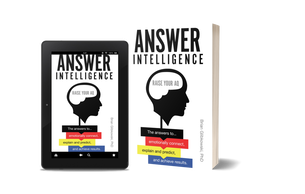
Answer Intelligence (AQ)™ is the ability to provide elevated answers to explain and predict in a complex world, emotionally connect, and achieve results. Are you conversation ready?
Meet HarperHarper's story illustrates the transformative power of AQ in her own career and in the success of her organization.
|
AQ Upskilling PlatformAI is machine thinking. AQ is human thinking (developed based on academic research) in terms of simple questions (why, what, how, when, where, who) and answers (concept, metaphor, theory, story, procedure, action) that elevate human-to-AI and human-to-human communication.
|
Quick Access LinksBuy the Book
Explore AQ (Free Assessment) AQ TEDx Video Professional Services Firms + AQ Brian Glibkowski, PhD - AQ Creator Meet Harper - Overview Video Meet Mark - Software Case Reasons You Need AQ |
Featured |

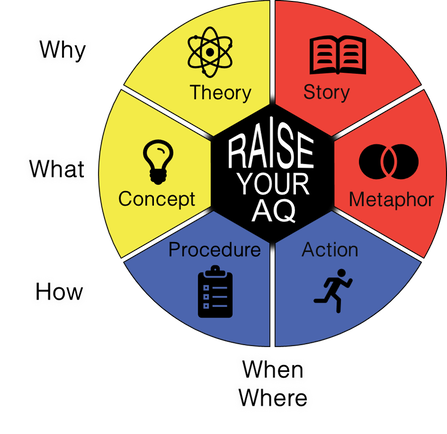
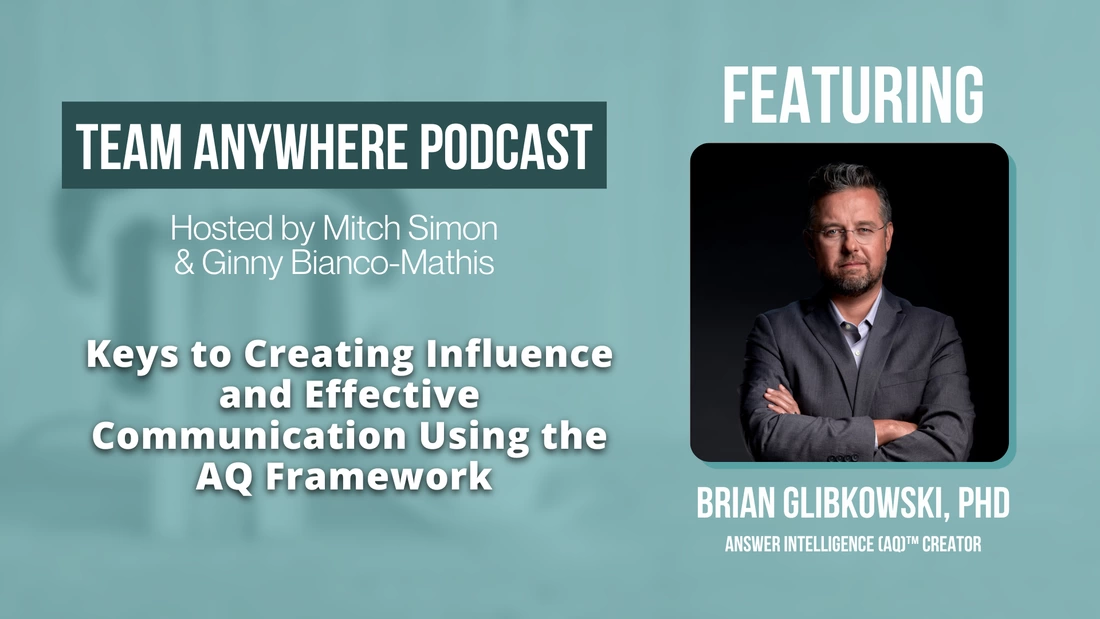

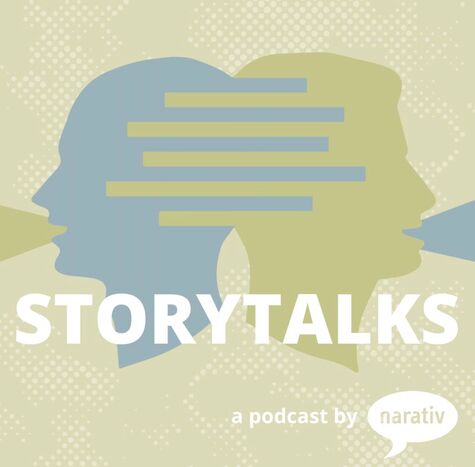
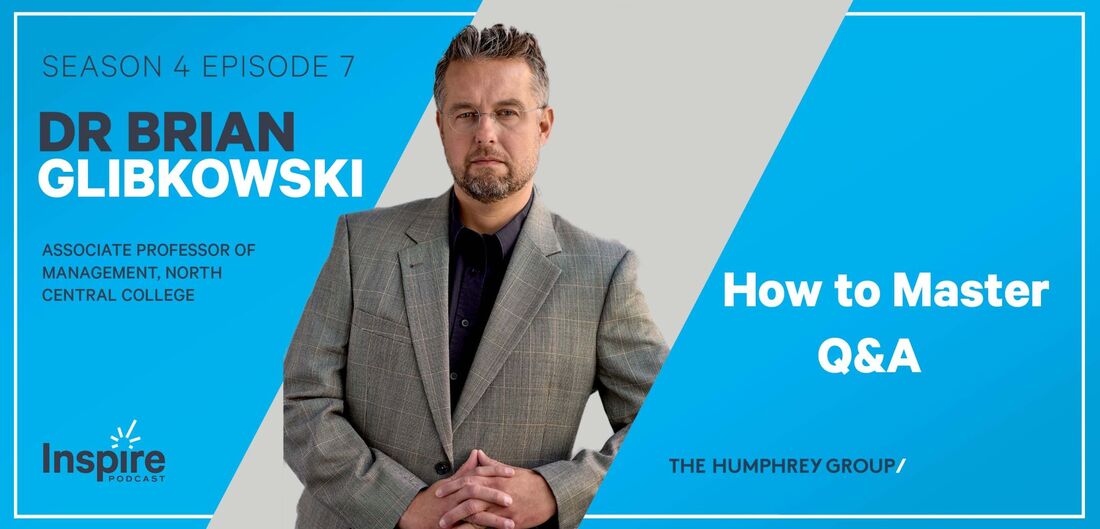

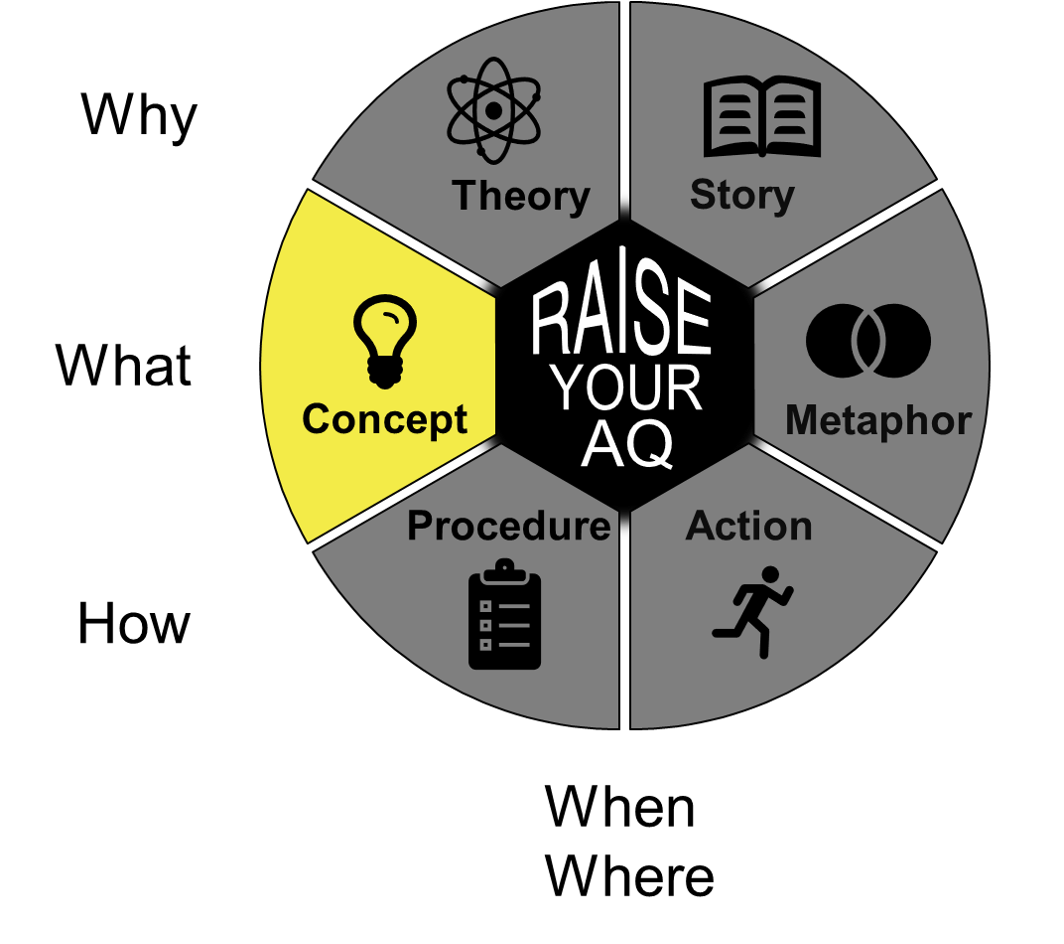
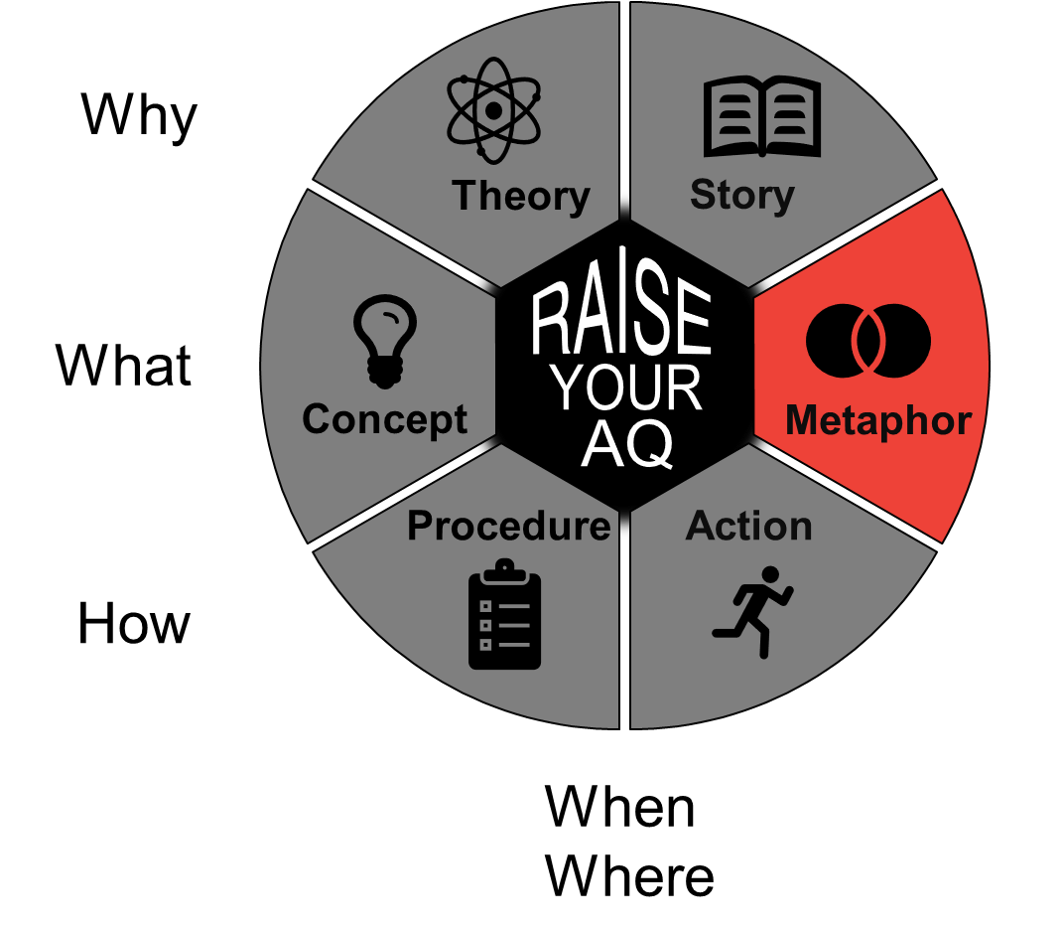
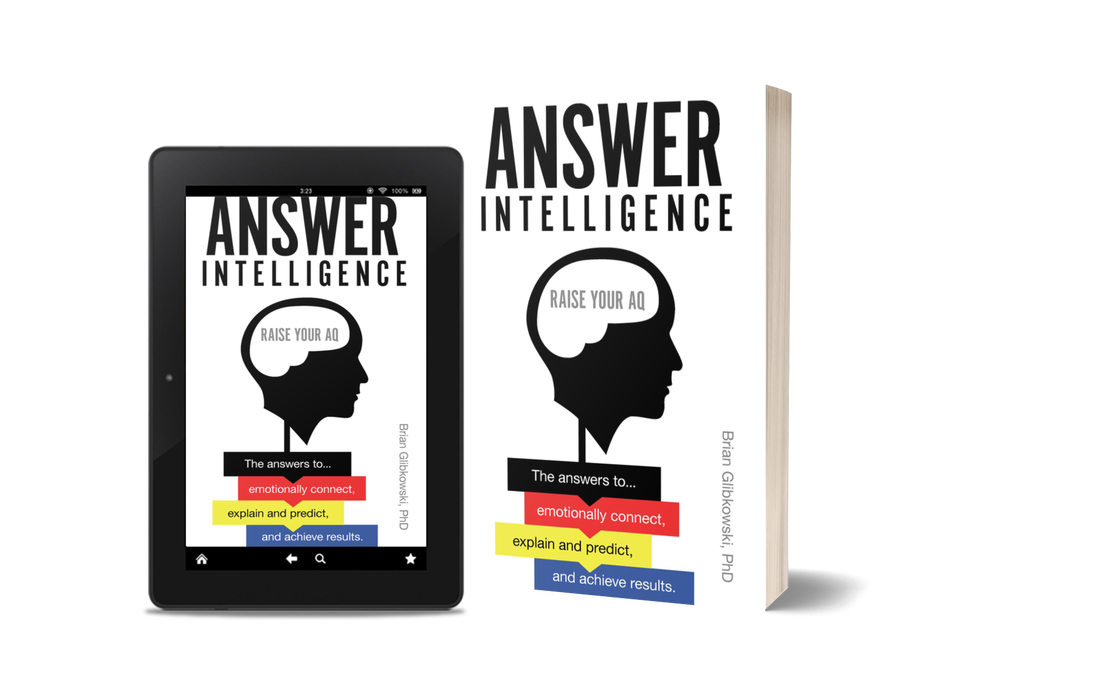
 RSS Feed
RSS Feed